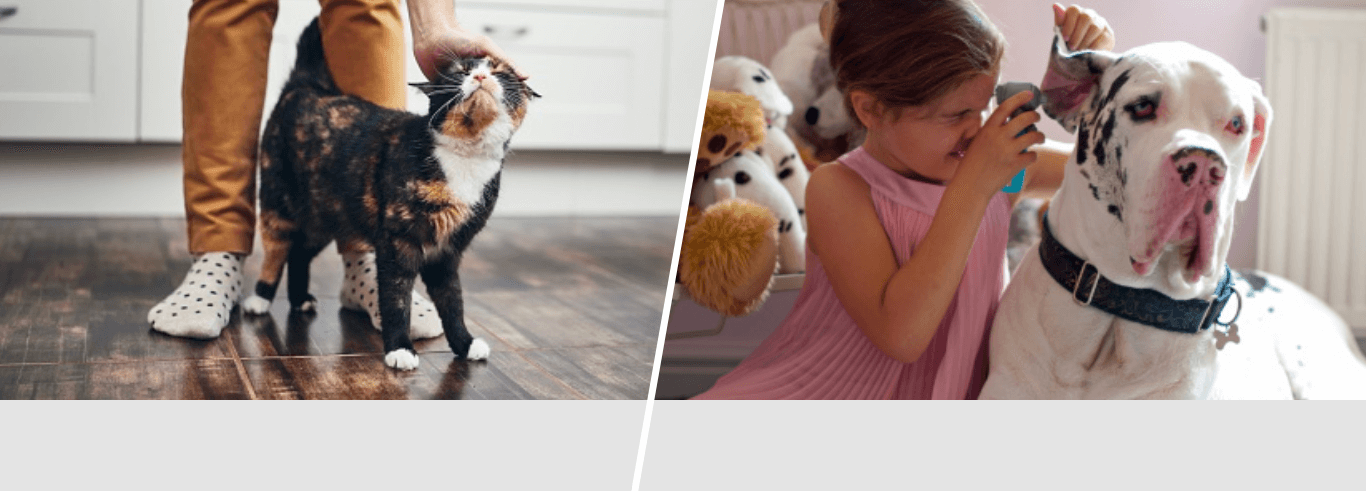Brain Training for Dogs
Not only do our pets need regular physical exercise, they also require mental stimulation to keep their minds active. We’re not suggesting you sit your poodle down with some maths homework but getting creative with your time spent together will increase the bond between you and your dog.
How a Dog’s Mind Works
The first step in making sure you are stimulating your dog’s mind, is to have an understanding of how it works. The positive reinforcement provided in training sessions can release the pleasure chemical oxytocin as well as reduce the stress chemical cortisol. This clearly shows that training sessions can be a fun bonding experience for you and your dog.
Negative reinforcement however, can create trust issues and anxiety, so should be avoided. Research has proven that positive training sessions have made dogs more obedient and increased the bond between them and their owners. (Science Direct, 1993)
Border collies, poodles and German shepherds are well known as some of the easiest dogs to train, but that doesn’t necessarily mean they are the smartest dogs. Just like humans can be good at English but bad at maths, dogs can be great at communicating, but not so good at remembering where their toys are hidden. We can tell from this that a dog can be a genius in one area but can struggle to retain information in another. And while physical health should always be at the forefront of an owner’s mind, a dog’s mental wellbeing and progression is just as important. Get both of these factors right, and you will be able to enjoy a healthy and happy dog.
How to Keep Their Minds Engaged?
Many people say that a tired dog is a good dog, but a dog’s health relies on more than just how physically exhausted they are. You wouldn’t put your dog on a treadmill for an hour and expect them to get the same mental stimulation they would get from going outside and down to the dog park, would you? New smells, experiences and socialising with other animals and humans are all important to your dog’s mental well-being.
There are plenty of toys and puzzles on the market to get your dog’s brain engaged and thinking in a new way. Puzzle solving games should start off easy, like knocking a plastic cover off a food bowl, then you can increase the difficulty of each task as they learn.
Make sure not to make the challenges too hard or your pet may become frustrated and remember to always reward good behaviour. Working dogs will usually perform better in challenges like this, as they have more experience in active problem solving compared to lap dogs, however, it is important that all dogs get the opportunity to increase their brain activity. Even if you have a senior dog, keeping their brains engaged is an important part of their lives.
Easy Brain Training Games
Here are just a few simple ideas to increase your dog’s happiness and mental wellbeing
- Hide the treats – place treats around the home and let your dog sniff them out
- Game of tug – classic tug of war with their favourite tug toy
- Treat balls – move treat ball to empty out the kibbles
- Food puzzles – lift lids or move levers to reveal treats
- DIY muffin tin game – place tennis balls in the tin for your dog to remove
- Activity mats – place treats in pockets and pouches for your dog to open
- Hide and seek – find a hiding spot in the house then see if your dog can find you
Rachael Waller of The Woof Works commented on the matter saying: “Although physical exercise is necessary and helps keep your dog healthy, you need to do more than just wear them out physically. To help keep your dog happy and healthy, you also need to tire them out mentally. Mental stimulation helps make your dog’s life more interesting, rewarding and meaningful because they’ll be using their brain which, like ours, requires stimulation”.
Try to save some time every day to get some brain training done with your dog. Many behavioural problems, like chewing furniture or hyperactivity, can stem from sheer boredom and a lack of stimulation. (MSD Veterinary Manual, undated).
Although exercise is a good way to combat this, five-minute sessions of training or interactive play throughout the day can also help to alleviate these issues. This doesn’t need to be teaching your dog elaborate tricks and stunts, simply rehearsing old tricks or playing games can be a huge help. Every dog has different needs – where a husky will easily tackle a 5k run and still have plenty of energy left, a dachshund will most likely struggle to keep up.
Finding the right balance for your dog is imperative in making sure they are enjoying their lives to the fullest.
Keep your dog’s brain active but also remember to keep your furry friend protected with Argos Pet Insurance provided by Pinnacle Insurance Ltd. Explore our dog insurance policies today.
MSD Veterinary Manual (undated) Behavioural Problems of Dogs
Science Direct (1993) The Effects of Dog Obedience Training and Behavioural Counselling upon the Human-Canine Relationship
 Sorry, our lines are now closed
Sorry, our lines are now closed




